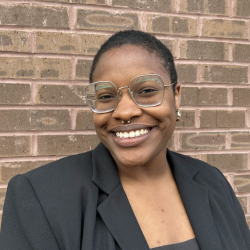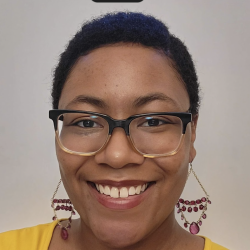
Couples: Talking about money can be really hard - it’s a subject that’s as taboo (if not more) than sex. Everyone is raised with different attitudes towards money, and they carry these values and expectations into their relationships. It’s normal for there to be differences between partners; i.e. a spender with a saver. With consistent and open conversation, these differences can help your relationship and your finances flourish. It’s when you avoid talking about money that you close your partner out of an important piece of your day-to-day. How can they truly know what’s stressing you out, or making you proud, or influencing your decisions if the two of you don’t discuss money?
Too often, couples come in for counseling in crisis because they’ve pushed off important conversations about finances for too long. “My husband won’t stop pushing to spend over our budget on dinners; it’s like he doesn’t care about our future!” “My wife is obsessed with saving, so we never go on dates anymore; it’s like she doesn’t want to spend time with me!” When you don’t take the time to set shared expectations, financial differences become personal, and can poison a relationship.
Use the guide below as a first step to start a conversation about finances with your partner. This is an introductory-level guide to get the ball rolling. Use the questions below to start the conversation and learn more about each other.
Take some time before you get together to write down your answers to each of the questions below:
Family Financial Culture
- As a kid, did you participate in family conversations about money? How did your parents talk about budgeting, spending and saving? What were their priorities?
- If you wanted to buy something as a kid, were you able to do so? If so, where did the money come from?
- Were you given an allowance? Were you expected to do anything in order to receive an allowance? Were you given money when you asked for it?
- When (if ever) did you become financially independent from your parents? How did it happen, and how did it feel at the time?
- If you want to borrow money from your parents as an adult, is that possible? If so how does it work and what are the expectations?
- Thinking back to family conversations about money, what feelings often came up? Did talking about money make your family feel powerful? Embarrassed? Angry? Anxious? Excited? Which of these feelings are present for you as an adult making financial decisions?
- Describe a time you felt in control of your finances. Describe a time you felt controlled by your finances. What factors lead you to feel that way? Where on that spectrum would you place yourself today? Why?
Relationship Expectations
When you imagined a future with your partner, how did you imagine we would handle shared expenses? Would you split everything 50/50? Split things based on our relative incomes? Would you pay a larger chunk of shared expenses? Why?
When you imagined a future with your partner, what did you imagine would happen to any debt you had? Any debt your partner had?
What would it say about the relationship if you contributed less than your partner to shared expenses? What, if anything, would it say about you as an individual? What about the reverse - if you contributed more than your partner?
What financial goals do you have for yourself in the future? What kind of lifestyle do you want?
Have you told your partner about your financial landscape - monthly income, debts, savings etc? Why or why not? What feelings come up when you imagine doing so?
Share
Once you and your partner have written down answers to all of the above questions, swap papers. Underline answers you identify with. Circle answers you have questions about.
If you notice yourself having a strong reaction to your partner’s answers, that’s ok! For the sake of this exercise, see if you can translate feelings of surprise, disappointment or irritation into curiosity. I.e, if your partner gives a different answer than you did, get curious about the reason why. This is a beginning level conversation, and the purpose is to gather as much information as possible, not come to a compromise or take financial action.
Once you have read each other’s answers, use the following prompts to continue the conversation:
- Some things you said that I really connect with are…
- Something you said that sparked my curiosity was… why do you feel that way?
- Something I need help understanding is…
- Something that made me feel connected to you was…
- Something I now understand better about you is…
If you get stuck, that’s ok! Consider making an appointment with a couples’ therapist to continue the conversation with a facilitator. You can self schedule an inperson or a virtual couples therapy appointment at The Center for Growth Therapy Offices in PA, NJ, VA, GA, NM, FL or call 215 922 5683 x 100
- Ocean City Therapy Office
360 West Ave, Floor 1, Ocean City, NJ 08226 - Mechanicsville Therapy Office
9044 Mann Drive, Mechanicsville Virginia, 23116 - Alpharetta Office
11720 Amber Park Drive, Suite 160, Alpharetta GA 30006 - Society Hill Therapy Office
233 S. 6th Street, C-33, Philadelphia PA 19106 - Art Museum / Fairmount Therapy Office
2401 Pennsylvania Ave, Suite 1a2, Philadelphia PA 19130 - Santa Fe Therapy Office, 2204 B Brothers Road, Santa Fe, New Mexico, 87505
- Telemedicine: We have therapists who are licensed to work in Florida, Georgia, New Jersey, Virginia New Mexico and Pennsylvania
Therapy and Counseling Services Offered in Philadelphia, Ocean City, Mechanicsville, Santa Fe:
Individual Counseling and therapy
Couples Counseling and marriage counseling
Teen Therapy and Adolescent Therapy and tweens and child counseling
Family Therapy and multi-generational counseling
Art Therapy and Counseling no art skills needed
ADHD Therapyand ADD, Dyslexia, Autism, Tourettes counseling
Anxiety, Panic, OCD Therapy and worry and fear support
Breaking the cycle of Codependency and being your own person
Overcoming Chronic Illness and Chronic Pain .
Depression Therapy and sadness, gloom, and upset support
- Functional Neurological Disorder (FND) Therapy is a particular style of therapy designed for people with problems affecting their nervous system, how the brain and body send and receive signals.
Grief Therapy and loss, End of A Relationship, rejections, pregnancy and loss and therapy
Mindfulness Based Therapy and spirituality based therapy
- Narcissistic Abuse Recovery child of, parent of, spouse of, sibling of a narcissist.
Sex Therapy and sexual function & dysfunction, sex addiction, sexual orientation and gender identity support
Shame and Blame
Trauma Therapy both emotional and sexual abuse, complex trauma, PTSD counseling
Divorce support
Affairs, Infidelity, Unfaithful, Cheating counseling
Parenting therapy
Personality disorder treatments
Anger Management Therapy
Setting Boundaries and identifying ones own Core Beliefs
Just name some of the Mental Health issues that we work with. Our goal is to help you Change and Achieve Your Dreams























